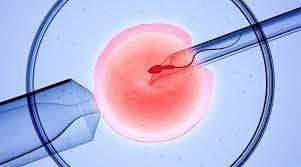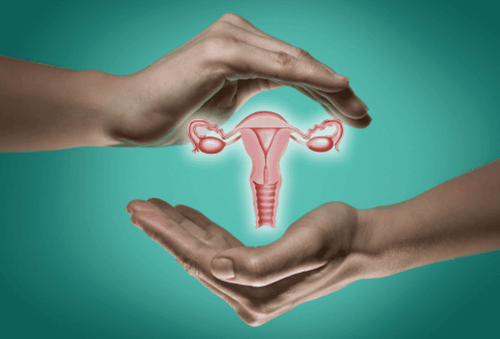This is an automatically translated article.
Male infertility is a man's health problem that reduces his ability to help his partner get pregnant. Of the many causes of infertility in both men and women, one-third of infertility cases are in men. It is usually caused by problems with sperm production or the ability of sperm to reach an egg.1. Reproductive function in men
Like women, male fertility is a complex process. To be able to support his partner to get pregnant, a man needs to have the following conditions:First, the man must be able to produce healthy sperm. This is a result of the formation and development of the male reproductive organs during puberty. At least one of the testicles is able to function properly as well as the body to synthesize enough testosterone and other hormones to trigger and maintain sperm production. After sperm is produced in the testicles, the attached tubes mix with semen and are ejaculated out of the penis.
The next condition is to have a sufficient number of sperm in the semen. Too low a count reduces the chances of one of the sperm fertilizing the egg.
Finally, sperm must be functional and able to move. If movement is poor or has limited mobility, it is difficult for sperm to reach or penetrate an egg to fertilize it.
2. Causes of male infertility

Vô sinh ở nam giới có thể do đâu?
Industrial chemicals: benzenes, toluene, xylene, pesticides, herbicides, organic solvents, paint materials... Exposure to heavy metals: lead, mercury. .. Radiation or X-ray High temperature: Too hot working environment, tight clothing, frequent sauna, hot bath can reduce sperm count. 2.3. Causes of male infertility due to habits, lifestyle Drug use: Using cocaine or marijuana can reduce sperm quantity and quality. Alcohol consumption: Alcohol lowers testosterone levels, causes erectile dysfunction, and reduces sperm production. Liver disease from drinking too much alcohol can also lead to fertility problems. Smoking: Men who smoke are observed to have lower sperm counts than non-smokers. Passive smoking can also affect male fertility. Mental Emotions: Chronic anxiety and stress can affect certain hormones needed for sperm production. Many studies show that the chances of getting pregnant may be lower if your male partner is severely depressed. In addition, psychological disorders in men can cause sexual dysfunction due to decreased libido, erectile dysfunction, delayed ejaculation or inhibition. Weight: Obesity can reduce fertility in many ways, including directly affecting sperm as well as indirectly causing hormone changes. Occupation: Certain jobs that involve sitting for long periods of time may be associated with an increased risk of infertility.

Nam giới cần chủ động thăm khám tiền sản nếu thấy có các dấu hiệu và triệu chứng liên quan đến vô sinh
3. When to see a doctor?
The main sign of male infertility is the inability to help your partner conceive. In addition, there may not be any other obvious signs or symptoms. However, in some cases, if a man has underlying problems such as genetic disorders, hormonal imbalances, varicose veins around the testicles or the risk of blockage of the vas deferens... Go to the doctor early for intervention.Besides, men need to proactively visit antenatal care if they see signs and symptoms related to male infertility including:
Problems with sexual function such as difficulty ejaculating, decreased libido sex or difficulty maintaining an erection (erectile dysfunction) Pain, swelling, discomfort or lumps in the testicles Recurrent respiratory infections Inability to smell Abnormal breast growth Decreased facial or other hair body area
4. How to prevent the risk of infertility in men
There are many causes of male infertility that cannot be prevented; however, you can still avoid some of the causes by doing the following tips:Quit smoking Limit alcohol avoid drugs Avoid exposure to pesticides, heavy metals and toxins Maintain a reasonable weight Avoid factors that cause prolonged heat accumulation in the groin area such as limiting sitting for a long time, not wearing tight pants, not soaking in hot water, sauna... Reduce stress In conclusion, male infertility should be considered as a real disease. Understanding the causes of male infertility above will help each man to prevent himself and partly help orient the right treatment attitude, timely intervention to ensure health and happiness. overview. Vinmec Reproductive Support Center is the leading modern center in Vietnam, built and applied a comprehensive medical examination and treatment process, combining both male and female medicine and obstetrics and gynecology to offer the optimal plan for the patient. each patient case. Up to now, Vinmec IVF fertility center has performed fertility support for over 1000 infertile couples with a success rate of 45%-50%. This rate is equivalent to developed countries such as the UK, USA, Australia, etc. With a high level of expertise and experience, Vinmec's team of experts is capable of implementing co-production. Comprehensive and comprehensive set of today's most advanced assisted reproductive techniques, helping to realize the dream of parenthood of hundreds of families across Vietnam.
Please dial HOTLINE for more information or register for an appointment HERE. Download MyVinmec app to make appointments faster and to manage your bookings easily.
Reference source: National guideline on reproductive health services - Ministry of Health













